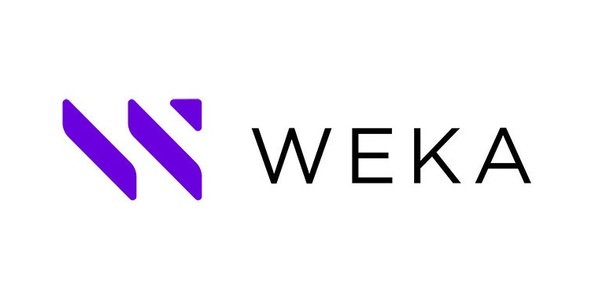 |
Global Survey of More Than 1,500 AI Decision-Makers Finds Organizations That Have Their Data Infrastructure "Houses In Order" Will Be Future AI Leaders
CAMPBELL, Calif., Aug. 17, 2023 /PRNewswire/ -- According to a new global study conducted by S&P Global Market Intelligence and commissioned by WEKA, the adoption of artificial intelligence (AI) by enterprises and research organizations seeking to create new value propositions is accelerating, but data infrastructure and AI sustainability challenges present barriers to implementing it successfully at scale. These challenges have been exacerbated by the rapid onset of generative AI that has defined the evolution of the AI market in 2023.
These findings were published today as part of S&P Global's new 2023 Global Trends in AI report. The research findings are based on a sweeping global survey conducted by S&P Global of more than 1,500 AI practitioners and decision-makers at medium to large enterprise and research organizations across APAC, EMEA and North America – one of the largest of its kind to date.
The study identifies the opportunities and obstacles organizations have encountered in their AI journeys, the unique motivators and value drivers spurring global AI adoption across industries, and provides insights into what steps organizations will need to take to succeed with AI in the future.
"The meteoric rise of data and performance-intensive workloads like generative AI is forcing a complete rethink of how data is stored, managed and processed. Organizations everywhere now have to build and scale their data architectures with this in mind over the long term," said Nick Patience, senior research analyst at 451 Research, part of S&P Global Market Intelligence. "Although it is still the early days of the AI revolution, one of the overarching takeaways from our 2023 Global Trends in AI study is that data infrastructure will be a deciding factor in which organizations emerge as AI leaders.1 Having a modern data stack that efficiently and sustainably supports AI workloads and hybrid cloud deployments is critical to achieving enterprise scale and value creation."
Key findings from the study include:
AI Adoption and Use Cases Are Accelerating, But Enterprise-Scale Still Remains Elusive
Data Management Is the Top Technical Inhibitor to AI Adoption
Enterprise AI Use Cases Are Shifting From Cost-Savings to Topline Growth
As AI Initiatives Mature, a Hybrid Approach and Multiple Deployment Locations Are Needed to Support Workload Demands
AI's Energy and Carbon Footprint Are Straining Corporate Sustainability Goals, But The Cloud Presents a Path to Improvement
Aging Data Infrastructures and Legacy Architectures Directly Impact AI's Sustainability Performance
Organizations Must Get Their Data and Infrastructure 'Houses in Order' to Lead with AI
"This expansive study from S&P Global validates what WEKA has heard repeatedly from our customers: traditional data infrastructures are having a direct, negative impact on their ability to use AI efficiently and sustainably at scale because they weren't developed with modern performance-intensive workloads or hybrid cloud and edge modalities in mind," said Liran Zvibel, cofounder and CEO at WEKA. "Just as you wouldn't expect to use battery technologies developed in the 1990s to power a state-of-the-art electric vehicle, like a Tesla, you can't expect data management approaches designed for last century's data challenges to support next-generation applications like generative AI. Organizations that build a modern data stack designed to support the needs of AI workloads that seamlessly span from edge to core to cloud will emerge as the leaders and disruptors of the future."
To learn more about S&P Global Market Intelligence 2023 Global Trends in AI study, visit www.weka.io/trends-in-AI to read the full report, or register to join WEKA and S&P Global Market Intelligence for a free webinar on September 26th, 2023: www.weka.io/lp/how-to-accelerate-your-ai-ml-journey.
Research Methodology
The findings in S&P Global Market Intelligence's 2023 Global Trends in AI report draw from a survey fielded in Q2 2023 of 1,516 AI/ML decision makers/influencers in companies with over 250 employees and more than $10M in annual revenue. The study prioritized respondents with AI/ML projects in pilots and production environments across the following industries: aerospace & defense, automotive, higher education, finance, energy/oil & gas, government, healthcare, information technology, life sciences, manufacturing, media & entertainment, and telecommunications. The report also draws on contextual knowledge of additional research conducted by S&P Global.
About WEKA
WEKA is leading a paradigm shift in how data is stored, processed, and managed in the cloud and AI era. The WEKA® Data Platform is a software solution that transforms stagnant data silos into dynamic data pipelines that power GPUs efficiently and fuel performance-intensive workloads seamlessly and sustainably. Its advanced cloud-native architecture is optimized to solve complex data challenges at scale, delivering 10-100x performance improvements across edge, core, cloud, hybrid and multicloud environments. WEKA helps the world's leading data-driven organizations accelerate research and discovery breakthroughs and business outcomes – including eight of the Fortune 50. We operate in over 20 countries globally and are backed by dozens of world-class investors. Learn more at www.weka.io, or connect with us on LinkedIn, Twitter, and Facebook.
WEKA and the WEKA logo are registered trademarks of WekaIO, Inc. Other trade names used herein may be trademarks of their respective owners.
1 Source: S&P Global Market Intelligence, 2023 Global Trends in AI Report, August, 2023
https://www.weka.io/trends-in-ai/